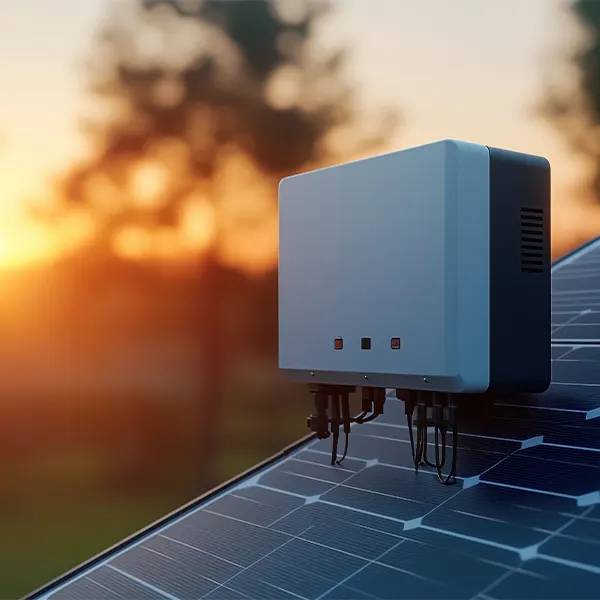


In solar energy systems, inverters convert DC energy to AC, enabling energy use in homes, businesses, and some agricultural applications. However, as technology advances, inverters not only convert energy but also enhance system performance with smart features. Solinved stands out in the industry with its smart inverters in terms of both energy efficiency and user experience.
In this article, we will examine in detail what smart inverters are, their advantages, and Solinved's solutions.
In addition to performing the DC-AC conversion performed by traditional inverters, a smart inverter also offers energy management, system monitoring, and optimization features.
Their main functions are:
Converting DC energy to AC
Optimizing voltage and frequency
Monitoring energy production and consumption
Managing the system with battery or grid integration
Solinved's smart inverters maximize energy efficiency and ensure system longevity through advanced control and monitoring features.
1. Maximum Energy Efficiency
Smart inverters utilize the energy from solar panels in the most efficient way. Solinved inverters optimize panel efficiency and minimize energy losses with MPPT (Maximum Power Point Tracking) technology.
2. Remote Monitoring and Control
Solinved smart inverters offer system performance monitoring via a mobile app or web interface. Users can receive real-time information about energy production, consumption, and system status and make necessary adjustments remotely.
3. Advanced Energy Management
Smart inverters achieve maximum efficiency by balancing energy production and consumption. Solinved systems can integrate with batteries and provide uninterrupted power using stored energy when solar energy is insufficient.
4. Longer System Lifespan
Smart inverters detect conditions such as overload, high temperature, or low voltage and protect the system. This extends the lifespan of both the inverter and connected devices.
5. Adaptability to Usage Areas
Residential Buildings: Efficiently meets the energy needs of homes.
Industrial Facilities: Provides maximum performance in production lines and areas with high energy requirements.
Electric Vehicle Charging Stations: Integrates with Solinved Charge to provide AC/DC charging.
Agricultural Irrigation (optional): Can operate irrigation pumps energy efficiently, saving energy.
6. Easy Installation and Use
Solinved smart inverters offer user-friendly design, easy installation and commissioning. Furthermore, system updates and performance monitoring features minimize maintenance.
MPPT Technology: Maximizes panel efficiency.
Real-Time Monitoring: Energy production and consumption can be monitored via mobile devices and the web.
Energy Storage Integration: Compatible with lithium batteries or other energy storage solutions.
Remote Fault Diagnosis: Fault conditions can be monitored remotely, enabling rapid intervention.
High Durability: Designed to withstand harsh climate conditions and high temperatures.
Energy Savings: The system utilizes energy optimally.
Environmentally Friendly: Reduces fossil fuel consumption and lowers carbon emissions.
Uninterruptible Power: Energy storage and intelligent management provide power even when sunlight is insufficient.
Long Lifespan: System security and overload protection protect the inverter and connected devices.
User Friendly: Provides ease of use with remote monitoring and control.
1. What is a smart inverter?
In addition to converting DC energy to AC, these inverters offer energy management, monitoring, and optimization features.
2. What systems are Solinved smart inverters compatible with?
They are compatible with residential, commercial, industrial systems, and solar electric vehicle charging systems.
3. Do smart inverters increase energy production?
Yes, they maximize panel efficiency through MPPT and advanced energy management.
4. Does it require maintenance?
Minimal maintenance is sufficient. Periodic cleaning and performance checks are generally sufficient.
5. Is remote monitoring possible?
Yes, energy production, consumption, and system status can be monitored via a mobile app or web.